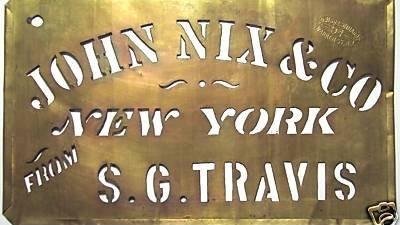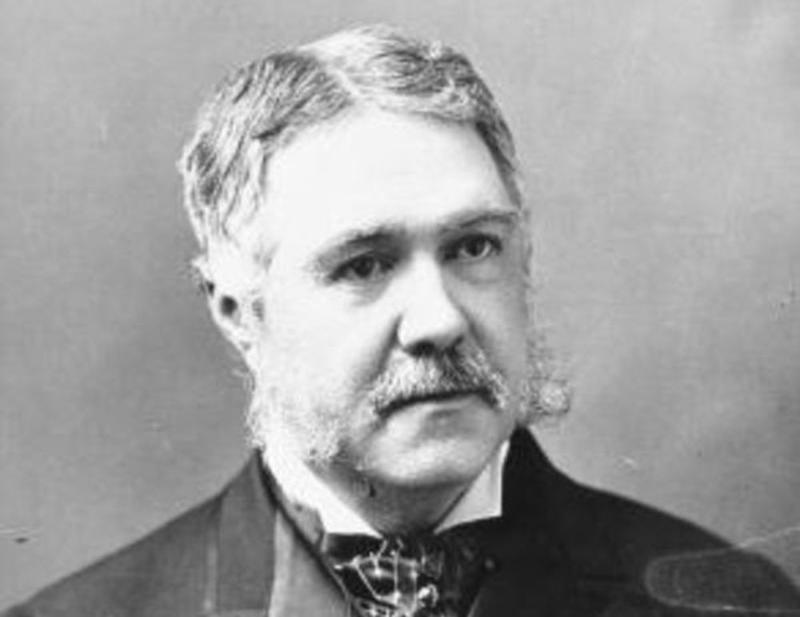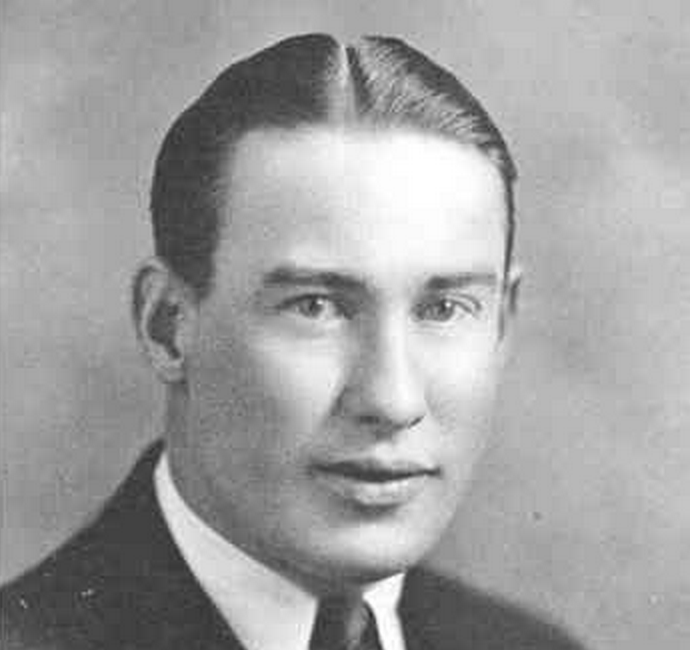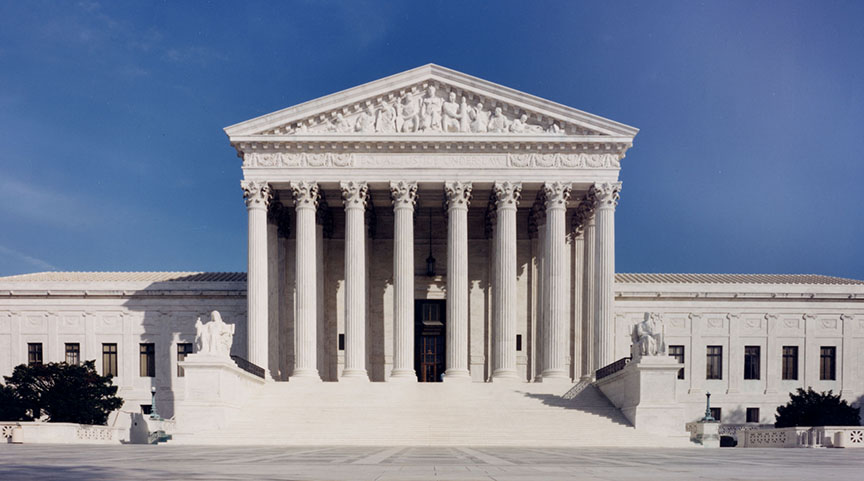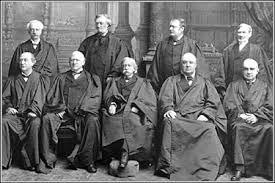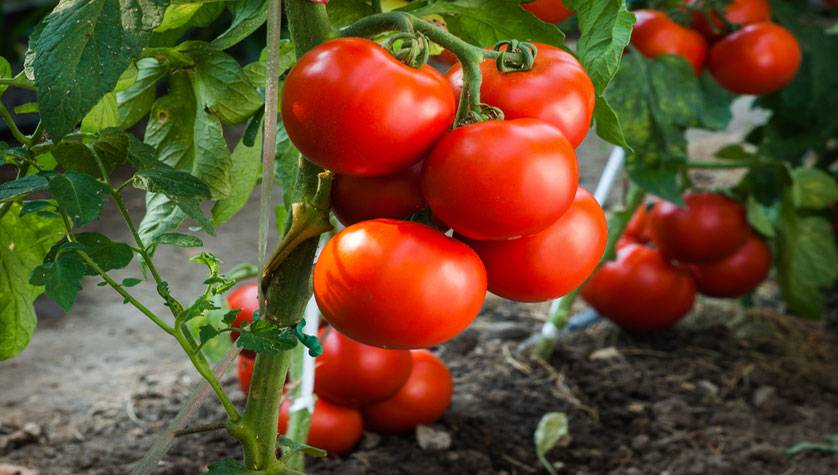In 1893, a successful New York produce seller fought back against the unjust taxation of his goods.
The legacy of his curious fight lives on, explaining why a fruit - the tomato - is New Jersey& #39;s state vegetable.
Who& #39;s up for a story?
 https://abs.twimg.com/emoji/v2/... draggable="false" alt="👇" title="Rückhand Zeigefinger nach unten" aria-label="Emoji: Rückhand Zeigefinger nach unten">
https://abs.twimg.com/emoji/v2/... draggable="false" alt="👇" title="Rückhand Zeigefinger nach unten" aria-label="Emoji: Rückhand Zeigefinger nach unten"> https://abs.twimg.com/emoji/v2/... draggable="false" alt="👇" title="Rückhand Zeigefinger nach unten" aria-label="Emoji: Rückhand Zeigefinger nach unten">
https://abs.twimg.com/emoji/v2/... draggable="false" alt="👇" title="Rückhand Zeigefinger nach unten" aria-label="Emoji: Rückhand Zeigefinger nach unten"> https://abs.twimg.com/emoji/v2/... draggable="false" alt="👇" title="Rückhand Zeigefinger nach unten" aria-label="Emoji: Rückhand Zeigefinger nach unten">
https://abs.twimg.com/emoji/v2/... draggable="false" alt="👇" title="Rückhand Zeigefinger nach unten" aria-label="Emoji: Rückhand Zeigefinger nach unten">
The legacy of his curious fight lives on, explaining why a fruit - the tomato - is New Jersey& #39;s state vegetable.
Who& #39;s up for a story?
1/ John Nix was one of the most successful sellers of produce in New York City.
He had founded the John Nix & Co. fruit commission in 1839 and quickly scaled up.
His innovation was in being one of the first to ship fruits and vegetables from warm climates to the Northeast.
He had founded the John Nix & Co. fruit commission in 1839 and quickly scaled up.
His innovation was in being one of the first to ship fruits and vegetables from warm climates to the Northeast.
2/ But in 1883, John Nix& #39;s business took a big blow.
President Chester Arthur (the rarely remembered US president who took over after President Garfield was assassinated) signed the Tariff Act of 1883.
The act required a tax to be paid on imported vegetables (but not fruit!).
President Chester Arthur (the rarely remembered US president who took over after President Garfield was assassinated) signed the Tariff Act of 1883.
The act required a tax to be paid on imported vegetables (but not fruit!).
3/ Tomatoes were included among the taxed goods, a fact that did not sit well with the detail-oriented Nix.
In 1888, he sued Edward Hedden, the collector of the board of New York, arguing that tomatoes were a fruit, and thus should not have been included in the tax.
In 1888, he sued Edward Hedden, the collector of the board of New York, arguing that tomatoes were a fruit, and thus should not have been included in the tax.
4/ In the case, which was heard in NY Federal Court in 1889, John Nix and his lawyers read aloud definitions of fruit and vegetable.
By the botanical definition - a ripened flower ovary that contains seeds - a tomato is clearly a fruit.
So Nix wanted his taxes back!
By the botanical definition - a ripened flower ovary that contains seeds - a tomato is clearly a fruit.
So Nix wanted his taxes back!
5/ But the court sided with Hedden.
The ruling said that the public tends to think tomatoes are a vegetable, so it should be considered a vegetable by the law.
John Nix, never one to take no for an answer, appealed the ruling all the way up to the Supreme Court.
The ruling said that the public tends to think tomatoes are a vegetable, so it should be considered a vegetable by the law.
John Nix, never one to take no for an answer, appealed the ruling all the way up to the Supreme Court.
6/ In April 1893, the Supreme Court heard the case.
Both sides made heavy use of dictionaries and expert definitions during the hearing.
Definitions of pea, eggplant, potato, turnip, and parsnip were read aloud, probably for the first and last time in Supreme Court history!
Both sides made heavy use of dictionaries and expert definitions during the hearing.
Definitions of pea, eggplant, potato, turnip, and parsnip were read aloud, probably for the first and last time in Supreme Court history!
7/ Sadly for Nix, in the end, the Supreme Court ruled unanimously in favor of Hedden.
The judgement argued tomatoes must be classified under customs regulation as a vegetable based on how they are used (i.e. with dinner and not dessert!) and popularly perceived.
The judgement argued tomatoes must be classified under customs regulation as a vegetable based on how they are used (i.e. with dinner and not dessert!) and popularly perceived.
8/ When words have acquired no special meaning in trade or commerce, the ordinary meaning must be applied by the court, the justices reasoned.
The case set a precedent for court interpretation of common meanings (and reinforced the false belief that tomatoes are vegetables!).
The case set a precedent for court interpretation of common meanings (and reinforced the false belief that tomatoes are vegetables!).
9/ And so it was that in 2005, New Jersey& #39;s state legislature declared the tomato, a fruit, as the official state vegetable!
So kids, next time your parents tell you to eat your vegetables, grab yourself a nice, ripe red tomato and tip a hat to John Nix and his failed fight.
So kids, next time your parents tell you to eat your vegetables, grab yourself a nice, ripe red tomato and tip a hat to John Nix and his failed fight.
10/ If you& #39;d like to learn more about this and other interesting Supreme Court cases, check out this video from @beatmastermatt.
https://www.youtube.com/watch?v=CX6G4lfrpAU
Special">https://www.youtube.com/watch... thanks to @JohnSerwach on the tip for the interesting financial history story!
https://www.youtube.com/watch?v=CX6G4lfrpAU
Special">https://www.youtube.com/watch... thanks to @JohnSerwach on the tip for the interesting financial history story!
11/ And for more educational threads on money, finance, business and economics, check out my meta thread below. Follow along for more! https://twitter.com/SahilBloom/status/1284583099775324161?s=20">https://twitter.com/SahilBloo...

 Read on Twitter
Read on Twitter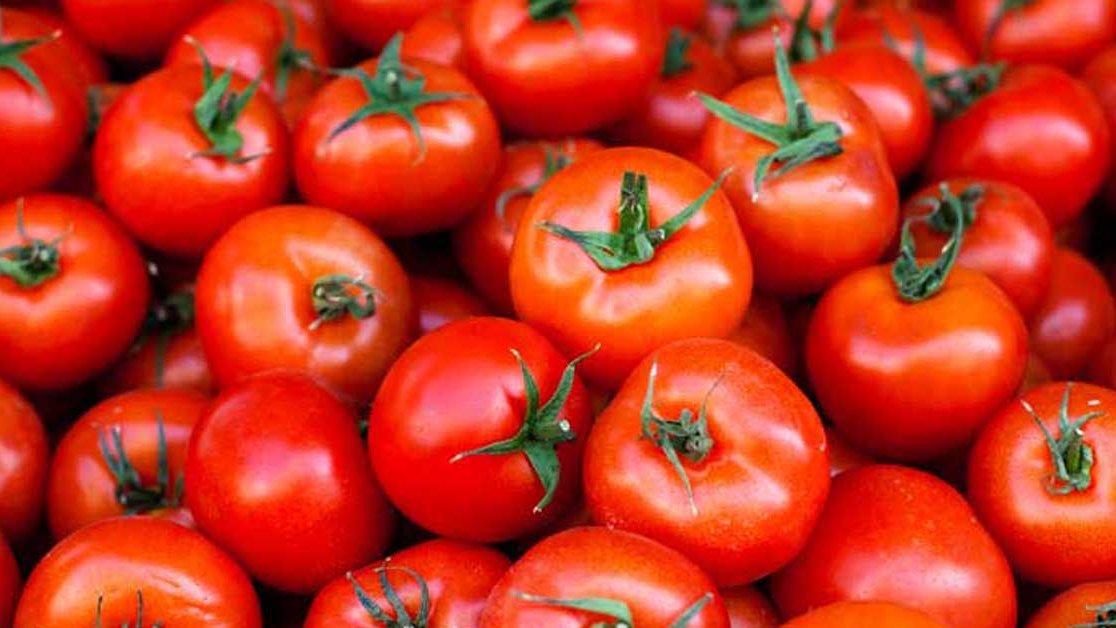 https://abs.twimg.com/emoji/v2/... draggable="false" alt="👇" title="Rückhand Zeigefinger nach unten" aria-label="Emoji: Rückhand Zeigefinger nach unten">https://abs.twimg.com/emoji/v2/... draggable="false" alt="👇" title="Rückhand Zeigefinger nach unten" aria-label="Emoji: Rückhand Zeigefinger nach unten">" title="In 1893, a successful New York produce seller fought back against the unjust taxation of his goods.The legacy of his curious fight lives on, explaining why a fruit - the tomato - is New Jersey& #39;s state vegetable.Who& #39;s up for a story?https://abs.twimg.com/emoji/v2/... draggable="false" alt="👇" title="Rückhand Zeigefinger nach unten" aria-label="Emoji: Rückhand Zeigefinger nach unten">https://abs.twimg.com/emoji/v2/... draggable="false" alt="👇" title="Rückhand Zeigefinger nach unten" aria-label="Emoji: Rückhand Zeigefinger nach unten">https://abs.twimg.com/emoji/v2/... draggable="false" alt="👇" title="Rückhand Zeigefinger nach unten" aria-label="Emoji: Rückhand Zeigefinger nach unten">" class="img-responsive" style="max-width:100%;"/>
https://abs.twimg.com/emoji/v2/... draggable="false" alt="👇" title="Rückhand Zeigefinger nach unten" aria-label="Emoji: Rückhand Zeigefinger nach unten">https://abs.twimg.com/emoji/v2/... draggable="false" alt="👇" title="Rückhand Zeigefinger nach unten" aria-label="Emoji: Rückhand Zeigefinger nach unten">" title="In 1893, a successful New York produce seller fought back against the unjust taxation of his goods.The legacy of his curious fight lives on, explaining why a fruit - the tomato - is New Jersey& #39;s state vegetable.Who& #39;s up for a story?https://abs.twimg.com/emoji/v2/... draggable="false" alt="👇" title="Rückhand Zeigefinger nach unten" aria-label="Emoji: Rückhand Zeigefinger nach unten">https://abs.twimg.com/emoji/v2/... draggable="false" alt="👇" title="Rückhand Zeigefinger nach unten" aria-label="Emoji: Rückhand Zeigefinger nach unten">https://abs.twimg.com/emoji/v2/... draggable="false" alt="👇" title="Rückhand Zeigefinger nach unten" aria-label="Emoji: Rückhand Zeigefinger nach unten">" class="img-responsive" style="max-width:100%;"/>
